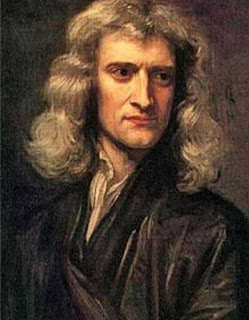Sir Isaac Newton(1642-1726) - Newton was a polymath whose investigation into a whole range of subject including mathematics,optics,physics,and astronomy. In his life principia Mathematica, published in 1687,he laid the foundation for classical mechanics, explaining the law of gravity and the laws of motion.
Galileo (1564-1642)- creating one of the first modern telescope, Galileo revolutionized our understanding of the world successfully providing the earth revolves around the sun and not the other way around.
Albert Einstein 14 March 1879 – 18 April 1955) was a German-born theoretical physicist[5] who developed thetheory of relativity, one of the two pillars of modern physics (alongside quantum mechanics).[3][6]:274 His work is also known for its influence on the philosophy of science.[7][8] He is best known to the general public for his mass–energy equivalenceformula , which has been dubbed "the world's most famous equation".[9]
Charles Darwin 12 February 1809 – 19 April 1882) was an English naturalist, geologist andbiologist,[6] best known for his contributions to the science of evolution.[I] His proposition that all species of life have descended over time from common ancestors is now widely accepted, and considered a foundational concept in science.[7] In a joint publication with Alfred Russel Wallace, he introduced his scientific theory that this branching pattern ofevolution resulted from a process that he called natural selection, in which the struggle for existence has a similar effect to the artificial selection involved in selective breeding.[
Nikola Tesla ; 10 July 1856 – 7 January 1943) was a Serbian-American[3][4][5] inventor,electrical engineer, mechanical engineer, andfuturist who is best known for his contributions to the design of the modernalternating current (AC) electricity supplysystem.[6]
Charles Darwin 12 February 1809 – 19 April 1882) was an English naturalist, geologist andbiologist,[6] best known for his contributions to the science of evolution.[I] His proposition that all species of life have descended over time from common ancestors is now widely accepted, and considered a foundational concept in science.[7] In a joint publication with Alfred Russel Wallace, he introduced his scientific theory that this branching pattern ofevolution resulted from a process that he called natural selection, in which the struggle for existence has a similar effect to the artificial selection involved in selective breeding.[
Nikola Tesla ; 10 July 1856 – 7 January 1943) was a Serbian-American[3][4][5] inventor,electrical engineer, mechanical engineer, andfuturist who is best known for his contributions to the design of the modernalternating current (AC) electricity supplysystem.[6]








0 Comments